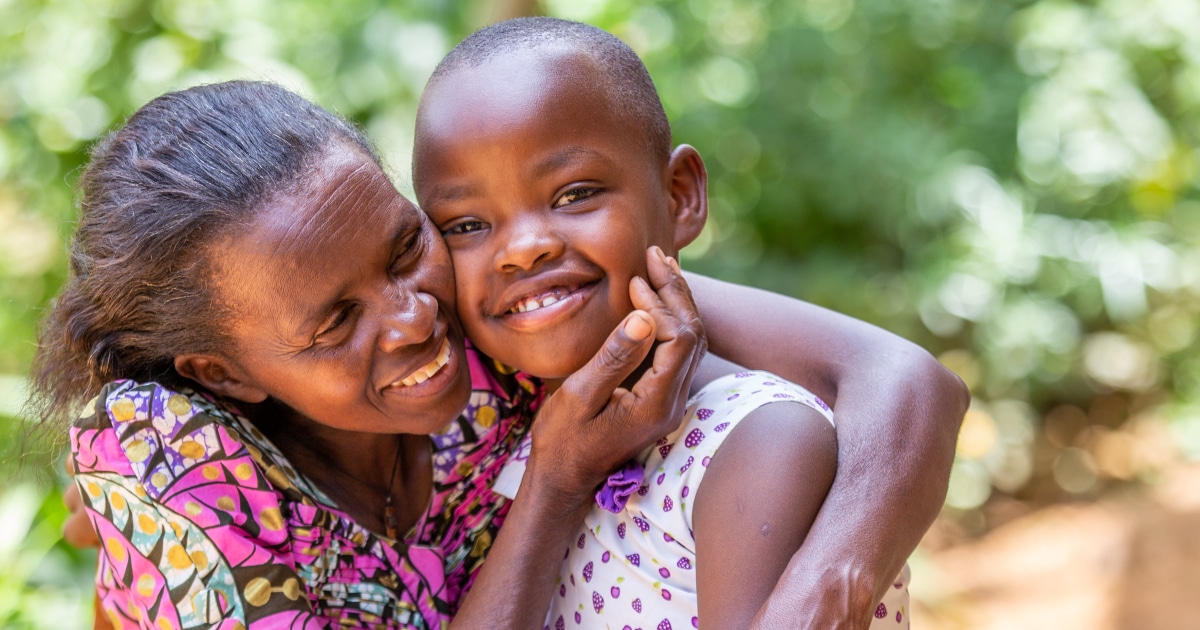Rwanda is set to close its last remaining orphanage by 2026. Read on to discover how your generosity is bringing the last children living in orphanages back to family. Children like Uwase*.
April 7th marks the 30th Commemoration of the Genocide Against the Tutsi in Rwanda. On this day, we’re honouring the efforts of the Rwandan people in rebuilding their lives, communities, and nation.
We’ve worked in Rwanda since 2002. Now, there are only nine orphanages still in operation. Most children living inside them have disabilities, like Uwase. Our work is proving that it’s not only possible, but better for these children to be brought back to family.
Will you help our team bring children in orphanages in Rwanda back to family? Donate today.
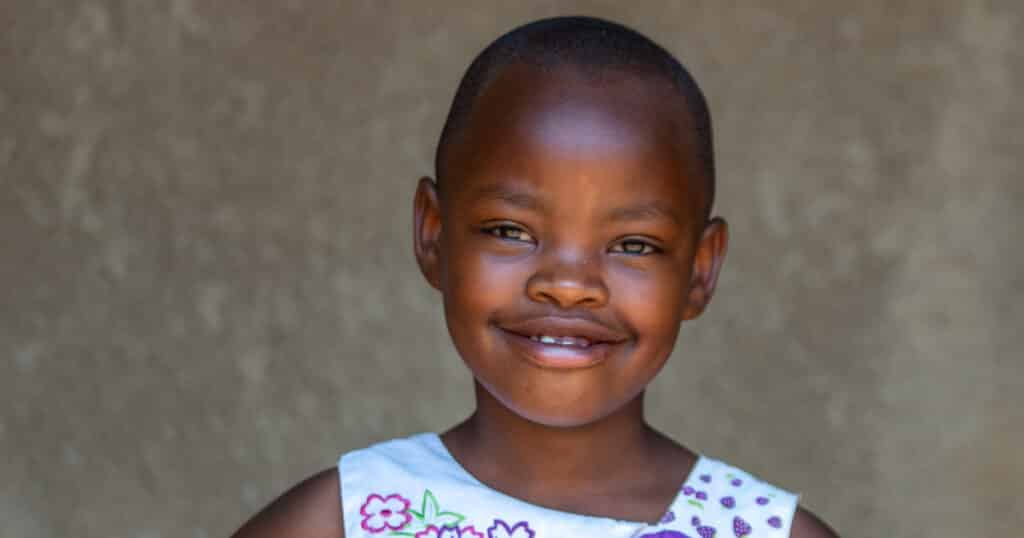
Jean Bizimana/Hope and Homes for Children
Uwase’s story
Uwase, pictured above, was abandoned as a baby. She was born with a disability in her leg, and then left in the streets of Rwanda’s capital, Kigali, at ten months old.
The authorities couldn’t find her parents, so they took her to an orphanage. She lived there for three long years.
Why children with disabilities end up inside orphanages
Around the world, families struggling with poverty, disability and discrimination sometimes make the desperate decision to abandon their children, believing they’ll be better cared for in an orphanage.
Unfortunately, this isn’t the case. Instead of helping children, orphanages put them in harm’s way.
During her time in the institution, Uwase was miserable. The staff didn’t help her with her disability, let alone teach her to walk. Unable to move around, she couldn’t interact or join in any games. Instead, she was left alone and ignored. Just existing. Day in, day out.
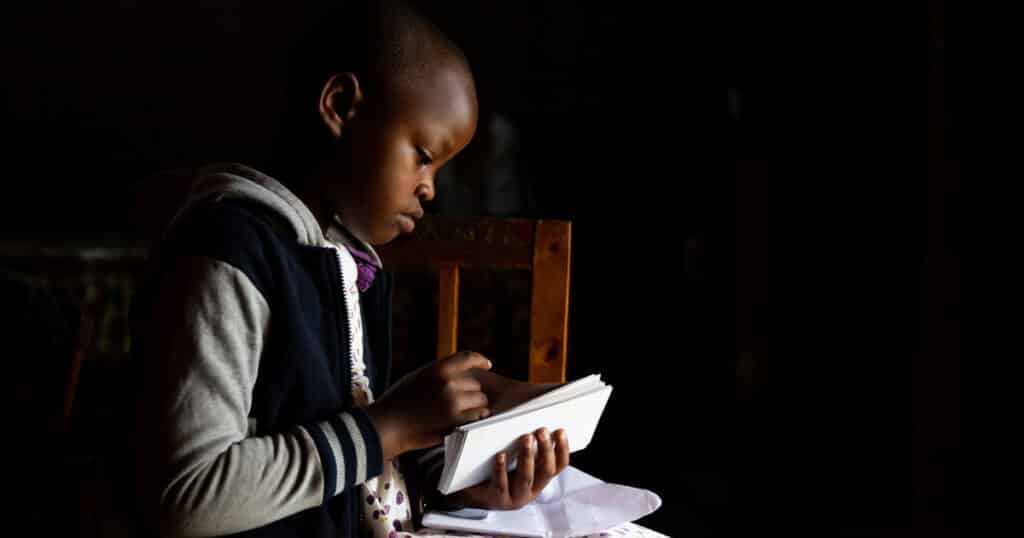
Jean Bizimana/Hope and Homes for Children
How we can bring children back to family
Like Uwase, most children still in Rwandan orphanages have disabilities.
“There are many misconceptions surrounding disabilities, like that children with disabilities are in some way burdens on their families,” explains Richard Munyaneza, Advocacy, Communication and Safeguarding Coordinator of Hope and Homes for Children Rwanda. “These false beliefs have permeated policy and decision-making processes.”
As a result, there’s a lack of support for parents of children with disabilities in Rwanda. All too often, they’re told their children will be better off in orphanages. But there’s always a better way.
Alongside the Rwandan Government, we’re standing up for the rights of every child to grow up in a safe and loving community. And we’re supporting families to bring their children home from orphanages, as at least 80% have living parents. And, for children who don’t, we’re recruiting loving adoptive parents. Just like we did for Uwase.
Finding family for Uwase
Unfortunately, no one could trace Uwase’s birth parents, so we started searching for a new family.
Gatete* and Uwimana*, a local couple with children of their own, heard about our work and quickly reached out.
As Uwimana explains:
“When I see my children growing up together with me and their father, with someone to call mum and dad, and compare that to seeing a child in an orphanage being cared for by different paid staff without a mother or father, it’s very sad. That’s why I made the decision to invite Uwase to join our family. So she can have someone to call her mum and dad.”
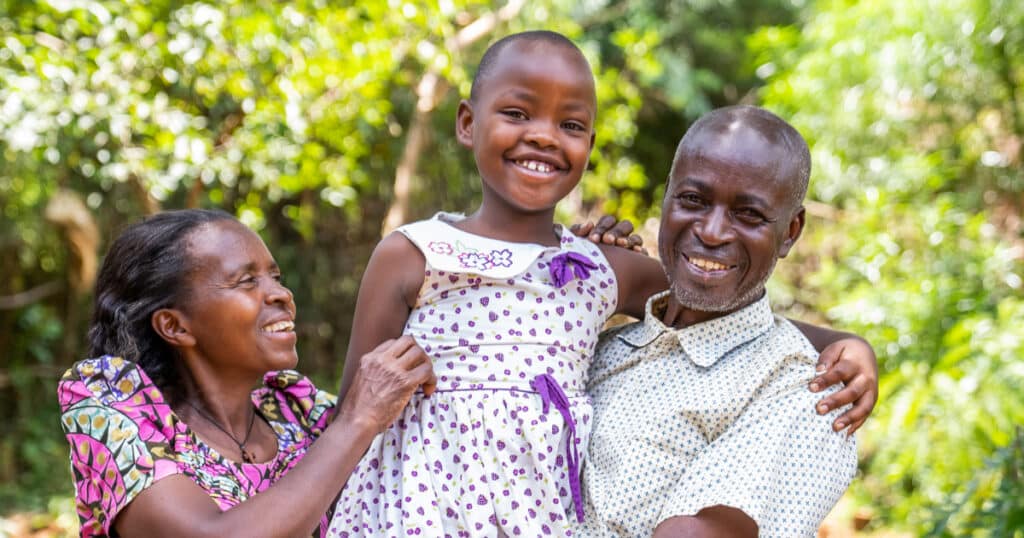
Jean Bizimana/Hope and Homes for Children
Creating a new family
After Uwase turned three, our team provided Gatete and Uwimana with specialist training to become adoptive parents.
“The training from Hope and Homes for Children really helped me to care for Uwase,” Uwimana says. “Even though I was already a parent, it helped me a lot. I was advised to love Uwase even more than I love my own children, to protect her from anything that might traumatise her any further.”
Before long, we were taking Uwase to her new home. At last, she was out of the orphanage and back to family.
Happy and loved
“Since living with us, Uwase is much happier,” Uwimana says. “She plays with other children and spends time outside. That means she’s much more aware of what’s happening in the community. She learns and gains so much more than other children shut away inside orphanages.”
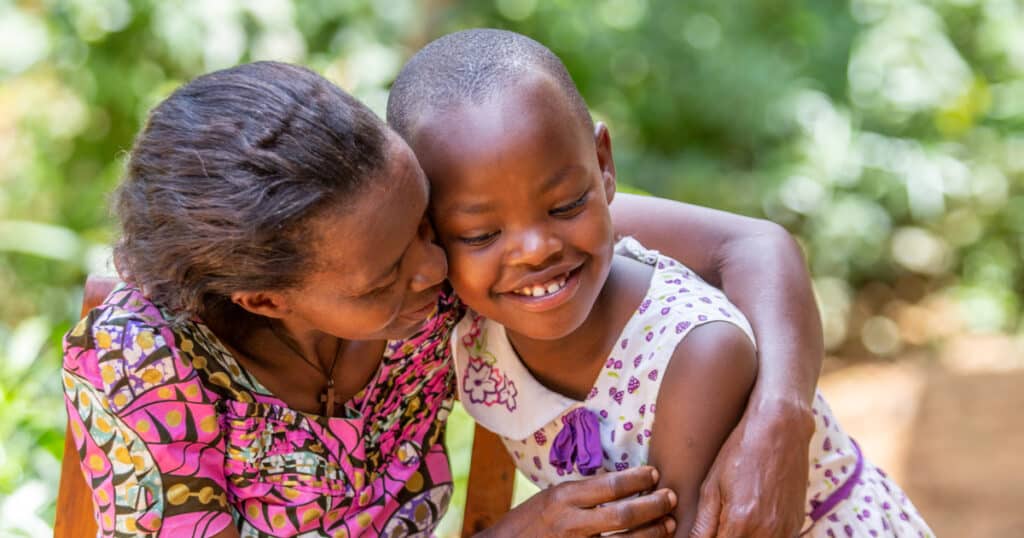
Jean Bizimana/Hope and Homes for Children
Our team continued to support the family and ensure they had everything they needed. We provided money to cover Uwase’s medical treatment and physiotherapy each month, for a year and a half. We also gave them counselling sessions and referred them to local leaders and health services for additional support.
And most importantly, thanks to life in her family, Uwase finally learned to walk.
“If she’d stayed in the institution, maybe she never would’ve learned to walk,” says Uwimana. “She was always alone in the dormitory, with noone to take care of her. But now things are different. It’s such a joy to see Uwase so happy and loved in my family.”
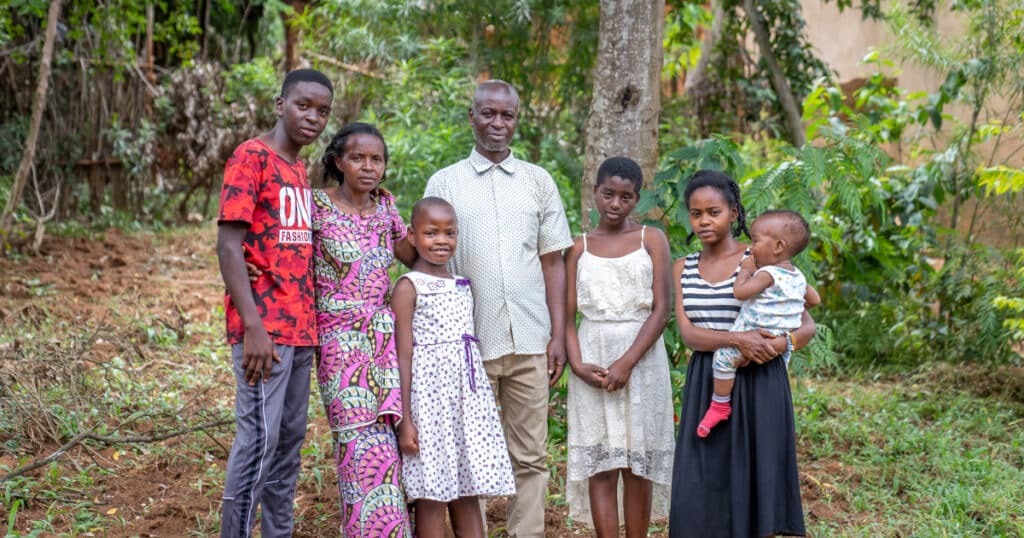
Jean Bizimana/Hope and Homes for Children
Closing the remaining orphanages in Rwanda
Uwase’s orphanage once had 26 children living inside.
Of those 26 children, we reunited four children with their families, found foster families for thirteen of them, and supported nine young adults to adjust to living independently. The orphanage is now closed.
Now, Rwanda is on the cusp of being orphanage-free by 2026. As of March 2024, there are only nine orphanages still operating. Our team is working with the local government to close them and bring every child in Rwanda back to family.
Will you help us get every child living in orphanages in Rwanda back to family? Donate today.
* Names changed to protect identity.
